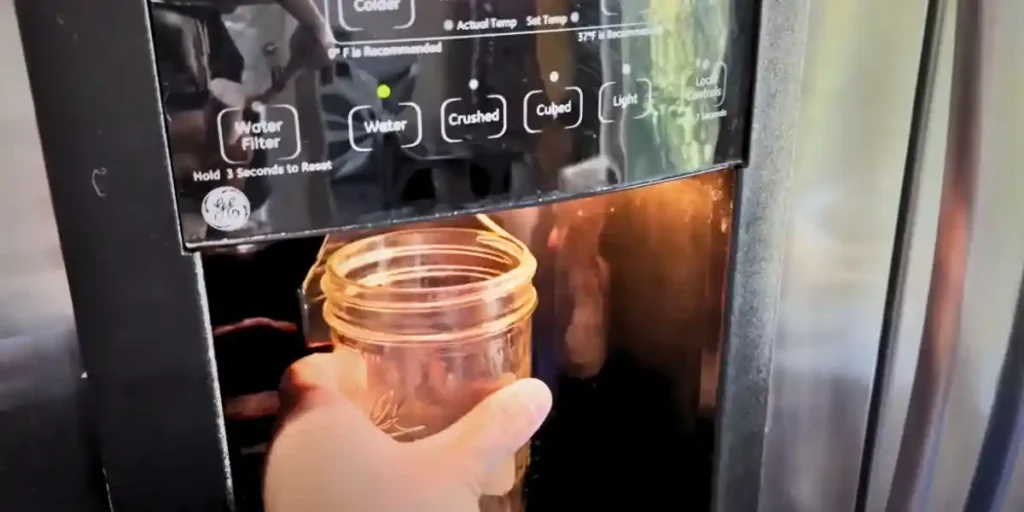Are you tired of dealing with frozen water lines in your refrigerator?
The frustration of a malfunctioning water dispenser can put a damper on your daily routine.
In this article, we’ll share practical tips and effective strategies to prevent frozen water lines in refrigerators.
With our services, you can adjust temperature settings, insulate lines, and ensure proper air circulation.
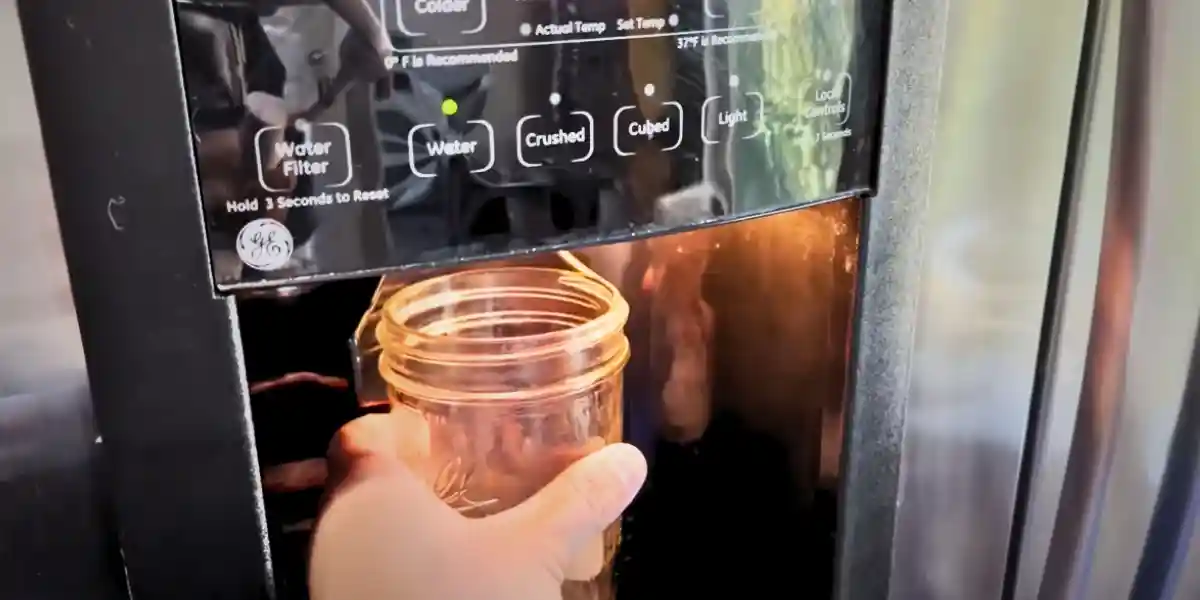
How Do I Stop My Refrigerator Water Lines from Freezing?
To prevent your refrigerator water lines from freezing, you can try the following steps:
Step 1: Check the Temperature Settings
First, make sure the temperature inside your refrigerator and freezer compartments is set correctly.
Low temperatures can cause the water lines to freeze. Refrigerators are usually set between 37°F (3°C) and 40°F (5°C), while freezers are usually set at -18°F.
Step 2: Inspect the Water Supply Line
Next, examine the water supply line that connects your refrigerator to the main water source.
Look for any signs of damage, such as cracks or leaks, as these can contribute to freezing issues. If you notice any damage, replace the line with a new one.
Step 3: Relocate the Water Supply Line
Sometimes, the placement of the water supply line can contribute to freezing. It may freeze more easily if it is near the freezer compartment or in a low-temperature area.
For additional protection against freezing, move the line or insulate it with foam pipe insulation.
Step 4: Verify the Door Seals
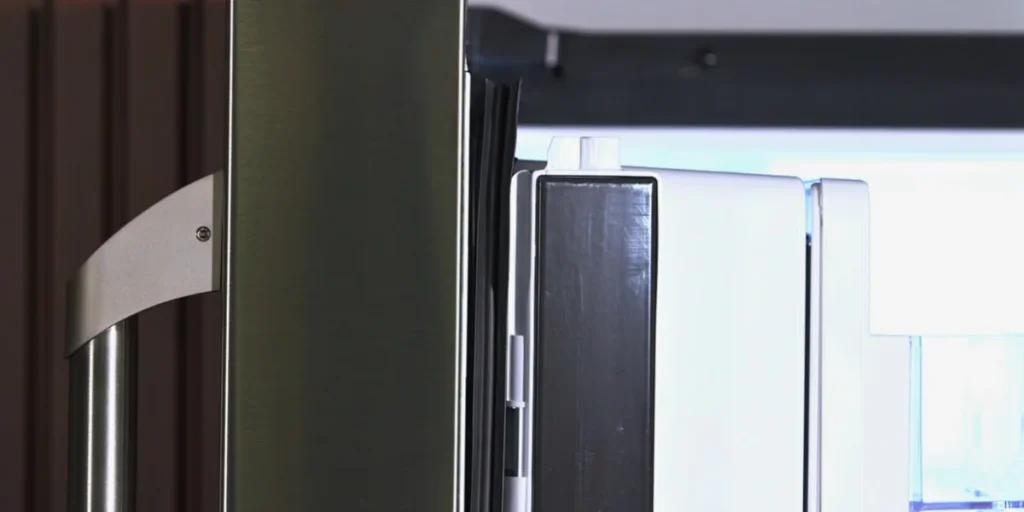
You can freeze your water lines when your refrigerator’s door seals fail, allowing cold air to escape.
Inspect the seals carefully and ensure they are clean, undamaged, and properly aligned. To maintain a consistent temperature inside the refrigerator, replace the seals.
Step 5: Adjust the Water Pressure
High water pressure can contribute to freezing within the refrigerator’s water lines. Make sure the pressure falls within the manufacturer’s recommended range, usually 20 psi to 120 psi.
If the pressure exceeds this range, you may need to install a pressure regulator to stabilize it.
Step 6: Install a Water Line Heater
Consider installing a water line heater in cold environments where freezing is a persistent problem.
This device wraps around the water supply line, providing warmth and preventing freezing.
Install the heater according to the manufacturer’s instructions and regularly check its functionality.
Step 7: Schedule Regular Maintenance
Maintaining your refrigerator is essential to preventing water lines from freezing in the long term.
Maintain optimal airflow and prevent temperature imbalances by cleaning coils, vents, and filters. Schedule regular maintenance according to the manufacturer’s instructions.
Risks Associated with Frozen Refrigerator Water Lines
Below are the key risks associated with frozen refrigerator water lines:
Water Supply Interruption:
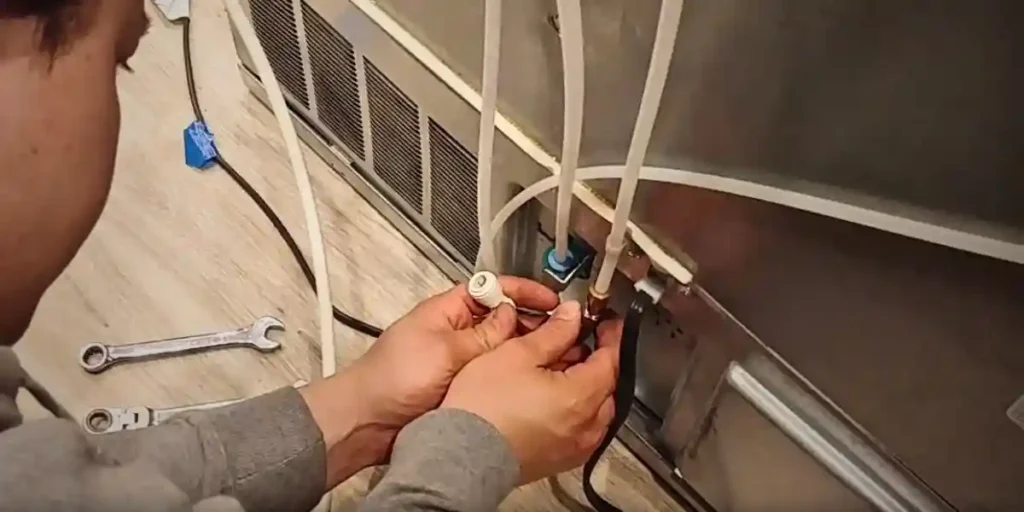
When the water lines freeze, the flow of water to the refrigerator is disrupted. This means you won’t have access to chilled water or ice cubes.
During hot weather or when entertaining guests, these amenities can be inconvenient and frustrating.
Damaged Water Lines:
Freezing water can expand and put pressure on the water lines. This expansion can cause cracks or even burst the lines, leading to leaks.
As a result, your kitchen or surrounding areas may also suffer from water damage. Water leaks can be costly to repair and may require professional assistance.
Malfunctioning Ice Maker:
Frozen water lines can also affect the performance of the refrigerator’s ice maker. If the water lines are frozen, the ice maker may not be able to produce ice cubes.
Ice is particularly inconvenient when you need a steady supply for parties, gatherings, or daily use.
Overworked Compressor:
The compressor in your refrigerator works to maintain the desired temperature. Frozen water lines cause the compressor to work harder to compensate for a lack of cold water.
This can lead to increased energy consumption, potentially resulting in higher electricity bills.
Furthermore, overworking a compressor may reduce its lifespan and require costly repairs.
Food Safety Concerns:
If the water lines freeze, it may affect the overall temperature stability inside the refrigerator.
Fluctuating temperatures can compromise the freshness and safety of your perishable food items.
To prevent food spoilage and potential health risks, monitor the refrigerator’s temperature.
Mold and Mildew Growth:
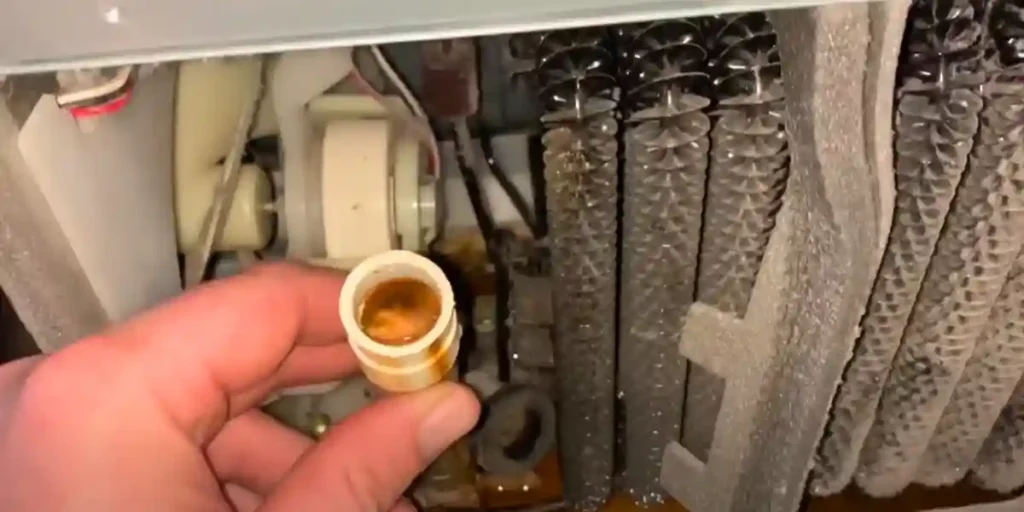
Mold and mildew can grow in an ideal environment created by leaking water lines or frozen pipes.
These microorganisms can damage your refrigerator’s quality and safety if left unchecked.
Tips for Preventing Freezing of Refrigerator Water Lines
Adjust the Temperature Settings
To prevent the freezing of your refrigerator water lines, start by adjusting the temperature settings.
Maintain the correct freezer temperature to preserve your food without freezing the water lines.
Aim for a temperature between 0 and 5 degrees Fahrenheit (-18 to -15 degrees Celsius).
Inspect and Insulate
Inspect the water lines connected to your refrigerator for signs of wear and tear.
Look for cracks, leaks, or loose connections that could lead to freezing. If you notice any issues, repair or replace the damaged parts promptly.
To provide extra protection against freezing, insulate the water lines. Wrap foam insulation sleeves around the pipes to shield them from extreme temperatures.
Insulate all exposed sections behind or beneath the refrigerator, including any exposed sections.
Keep the Freezer Door Closed
The freezer door should be opened and closed frequently to prevent warm air from entering.
This fluctuation increases the risk of water lines freezing. Make a habit of keeping the freezer door closed as much as possible.
Only open it when necessary and close it promptly afterward.
Maintain Adequate Air Circulation
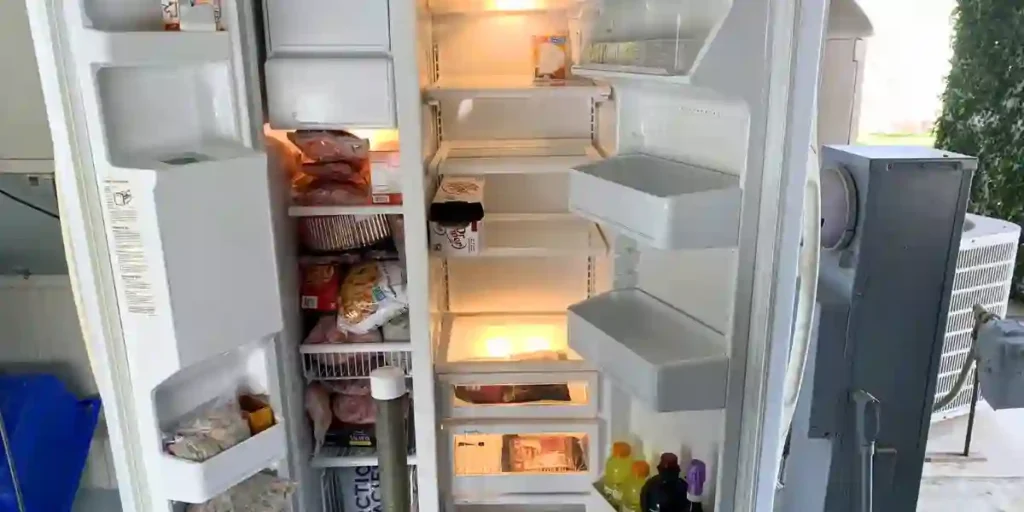
To prevent the water lines from freezing, ensure that your refrigerator has proper air circulation.
Ensure that there is sufficient space between the refrigerator and the wall or other appliances.
This allows air to flow freely and prevents cold spots from forming near the water lines.
Run Water Regularly
Running water through the refrigerator’s water dispenser regularly helps prevent freezing. It keeps the water flowing, reducing the chances of ice buildup within the lines.
Aim to run the water for a few seconds every day or every other day to maintain a steady flow.
Install a Frost-Free Kit
Consider installing a frost-free kit in your refrigerator to further protect against freezing.
These kits usually consist of a small heating element that prevents ice formation in the water lines.
Follow the manufacturer’s instructions or consult a professional for proper installation.
Disconnect and Drain Water Lines (during extended periods of non-use)
If you’re going away or during the winter, disconnect the refrigerator’s water lines. Turn off the water supply valve and disconnect the lines.
Then, drain any remaining water by activating the dispenser until no water comes out. This precautionary step minimizes the risk of frozen lines while you’re away.
Common Symptoms of Frozen Refrigerator Water Lines
No Water Dispensing
When refrigerator water lines freeze, the water dispenser is unable to dispense water.
Water cannot flow through frozen lines, resulting in no water coming out of the dispenser.
Reduced Water Flow
The refrigerator’s water dispenser may be partially frozen if there is a significant decrease in water flow.
Due to ice obstructions, water cannot pass through, resulting in a weaker stream.
Ice Buildup in the Freezer Compartment
Another symptom of frozen water lines is the presence of ice buildup in the freezer compartment.
You may notice ice forming around the water lines or in the vicinity of the water filter.
This indicates that the lines are freezing, and the excess moisture is turning into ice.
Strange Noises or Vibrations
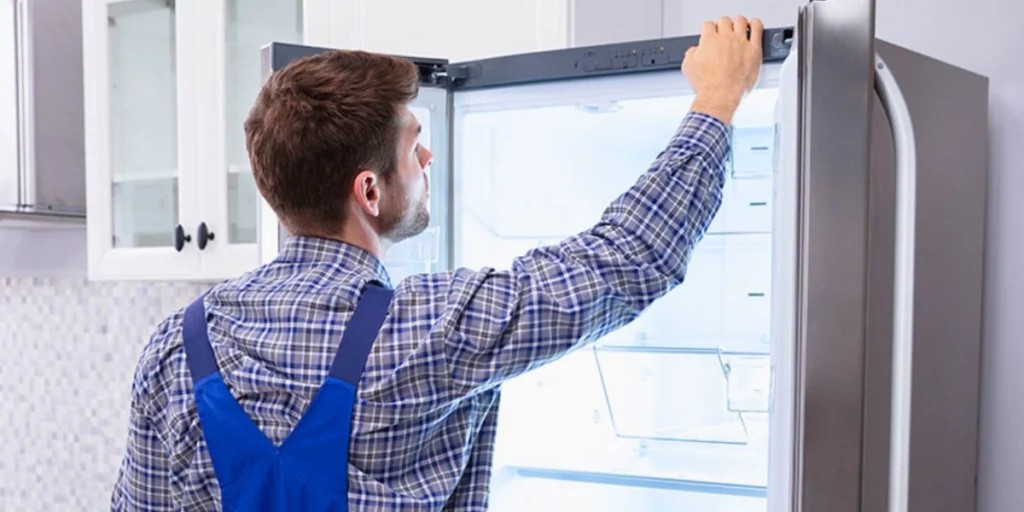
When water lines freeze, the water flow is disrupted, leading to unusual noises or vibrations.
A refrigerator may gurgle, buzz, or rattle as the water struggles to pass through frozen sections.
These noises are an indication that the water lines are frozen and need attention.
Temperature Fluctuations
Frozen water lines can impact the overall temperature stability inside the refrigerator.
Freezing of the lines can cause temperature fluctuations in the freezer and refrigerator.
There may be a problem with your food not staying as cold or items in the freezer thawing.
Water Leakage
In some cases, frozen water lines can lead to water leakage. Ice inside the pipes can expand, causing cracks or joints to separate, resulting in water seeping out.
You may notice water pooling near the refrigerator or around the water lines if they have frozen.
FAQ: Troubleshooting Frozen Refrigerator Water Lines
Is There Anything I Can Do To Insulate The Water Lines?
You can prevent water pipes from freezing by wrapping foam insulation sleeves around them. These sleeves act as a barrier, providing insulation and shielding the lines from the cold.
Ensure that all exposed pipes are covered, including any beneath or behind the refrigerator. Adding insulation to water lines prevents freezing.
Does Keeping The Freezer Door Closed Help Prevent Freezing?
Yes. water lines in your refrigerator can freeze if the freezer door is left open for too long. Temperature fluctuations are caused by frequent opening and closing of the freezer door.
These fluctuations increase the risk of the water lines freezing. Minimize door openings and close the freezer immediately after use to prevent frozen water lines.
How Important Is Air Circulation Around The Refrigerator For Preventing Freezing?
You need air circulation around your refrigerator to prevent water lines from freezing. Make sure the refrigerator has enough space between it and the wall or nearby appliances.
Ample space allows air to flow freely, preventing the formation of cold spots near the water lines. These cold spots can contribute to freezing.
Your freezer compartment will be less likely to freeze if you maintain proper air circulation.
Should I Run Water Regularly Through The Refrigerator’s Dispenser?
To prevent freezing, run water through the refrigerator’s dispenser regularly. Every day or every other day, run the water for a few seconds to maintain a steady flow.
This continuous flow helps prevent the formation of ice within the pipes. Besides flushing stagnant water, running water minimizes the risk of frozen water lines and blockages.
It’s a simple habit that can keep your refrigerator water lines from freezing.
Conclusion
Prevent frozen water lines in your refrigerator by taking simple yet effective measures.
Ensure that your thermostat is set to the optimal temperature. Insulate the water lines using foam sleeves or heat tape.
Regularly check for any leaks or cracks that could cause freezing. Enjoy consistent coldness and refreshing drinks whenever you wish by implementing these simple steps.

